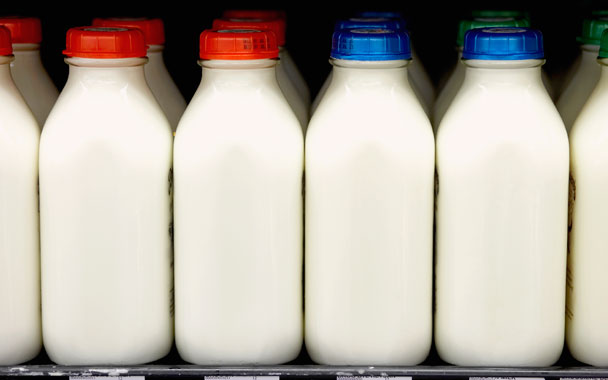You probably think you know what the word “milk” means. Well, don’t get too complacent. Bowing to the interests of corporate cheese and ice cream manufacturers, the folks at the Food and Drug Administration (FDA) appear poised to change the definition of the popular white liquid. Last week they extended the public comment period on a regulation that will allow processors to use a substance called “ultrafiltered milk” and list it as simply “milk” on ingredient lists.
The proposed changes have sparked outrage from farmers’ organizations, who point out, rightly, that there is a vast difference between real milk and the ultrafiltered stuff—also called milk protein concentrates. As the name implies, ultrafiltered milk has been passed through a fine membrane that retains large molecules such as protein and fat, while allowing smaller molecules like water, lactose, and little things called vitamins and minerals to wash away.
The concentrated fat and protein is cheaper to transport than milk, which explains why manufacturers like it so much. Under current rules, they are free to use the product even though it is deemed by the government’s own General Accounting Office not to be nutritionally equivalent to fluid milk, but they must list it as “ultrafiltered milk” or “milk protein concentrates” on the ingredient label.
But that’s not good enough for the industry. It claims that it is “impractical to comply with the labeling requirements” due to “economic and logistical burdens.” To add one extra word to their labels? Give me a break.
You’d think they’d have come up with something better than that. But then, with the FDA firmly in the corporate camp, they don’t need to. Profits will probably trump the rights of consumers to know what’s in their cheese.
As California Goes...
...so goes the rest of the nation. Or I hope so—at least when it comes to consumer-friendly food labeling. As I noted recently, the state does not allow seafood sold within its boundaries to be labeled organic because there are no official standards for organic fish in the United States. The seafood misleadingly sold in the rest of the country under the organic label has usually been certified by a foreign agency whose standards fall far below what U. S. consumers expect.
Late last month, right after the FDA gave its blessing to cloned animals, California State Senator Carole Migden introduced a bill requiring all food products from cloned animals or their offspring to display clear and prominent labeling.
And earlier this week, the California Supreme Court ruled that consumers could sue Albertson’s Inc., Safeway Inc., The Kroger Co., and other major supermarkets for failing to say on labels that farmed salmon is dyed with orange colorants (otherwise it would be an unappetizing grayish white).
Sacramento to Washington: “Anybody listening?”




 Pinterest
Pinterest


